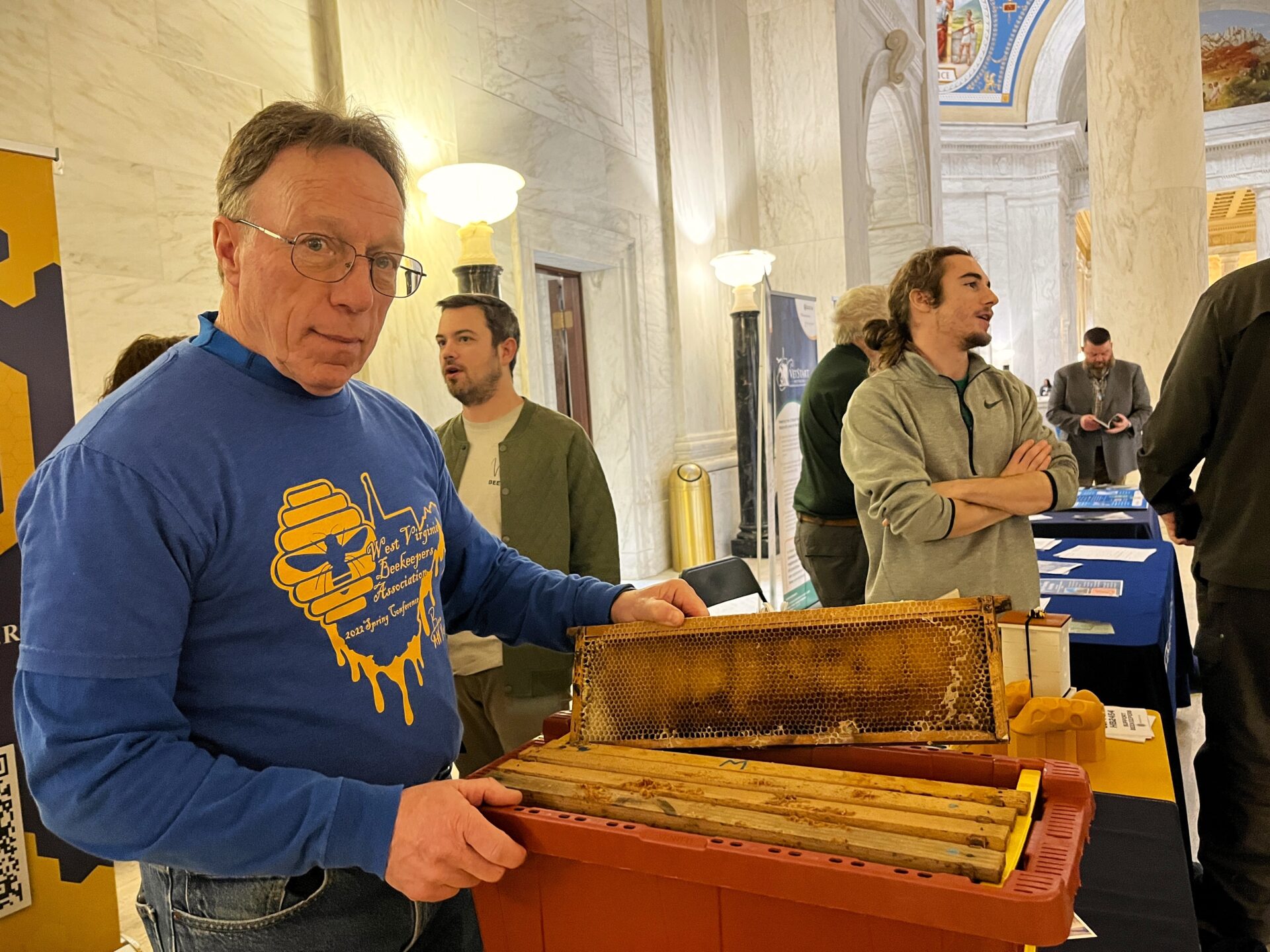West Virginia is home to roughly 16,000 honeybee colonies, which produce at least 250,000 pounds of honey per year, according to the West Virginia Department of Agriculture (WVDA). Across the United States, agriculturists estimate that honeybee-pollinated crops make up one-third of the food we eat.
But beekeepers in the Mountain State say overly restrictive local ordinances can make it hard to maintain colonies. Concerns like these have spilled over into the courtroom; and, this week, shown up at the State Capitol.
In 2023, South Charleston resident Alex Urban sought a permit to keep bees on his property, but was rejected by the city. South Charleston went on to ban keeping domesticated animals like bees within its limits, so Urban filed a lawsuit in the Kanawha County Circuit Court in August 2023.
On Urban’s behalf, the WVDA argued in court that the city “exceeded its legal authority” by enforcing beekeeping regulations outside the West Virginia Apiary Act and the West Virginia Right to Farm Law, the WVDA said in a Feb. 3 press release.
Ultimately, the circuit court ruled in favor of Urban and the WVDA, affirming that the WVDA has authority over beekeeping regulations in the state.
“Beekeeping is a crucial component of agriculture and environmental sustainability, and we are committed to protecting those who contribute to our state’s food systems,” said West Virginia Commissioner of Agriculture Kent Leonhardt in the press release. “We worked diligently to ensure that the law remains clear and fair for all West Virginia farmers and beekeepers.”
While the circuit court case has been put to rest, beekeepers across the state want stronger protection to ensure local policies do not infringe upon their right to maintain colonies. Several visited the State Capitol Thursday for “Agriculture Day,” an annual event that aims to familiarize lawmakers and residents with issues affecting the state’s agriculture industry.
Photo Credit: Jack Walker/West Virginia Public Broadcasting
Louisa Householder is president of the West Virginia Beekeepers Association (WVBA), which offers education, mentorship and advocacy to 25 regional beekeeping clubs across the Mountain State.
To prevent future conflicts on the local level, she said her organization is advocating for the West Virginia Legislature to pass House Bill 2454, which would clarify in the West Virginia Code that authority over apiary policies rests solely in the WVDA.
The bill was proposed in the West Virginia House of Delegates by Del. Mike Hornby, R-Berkeley, on Feb. 17. It has not yet been taken up for a reading on the House floor.
“No town, city, municipality or political subdivision may prohibit urban agriculture or agricultural residential land or cause a permit or license to be issued or obtained to engage in the practice of urban agriculture,” the bill reads.
“It strengthens the apiary law that we already have,” Householder said, adding that supporting beekeeping rights “is extremely important for food security.”
Mike Lamp serves as the president of the Monongalia County Beekeepers Association, part of the WVBA network. He said the value of pollinators like honeybees reaches beyond food production.
“Pollinators not only help with cultivating crops, but wild species of plants as well,” he said.
Like Householder, Lamp said reinforcing protections is a simple way to ensure an important animal species keeps strong numbers across the state.
“The beekeeping industry in West Virginia is not necessarily a small one. It’s a relatively sizable industry with a lot of people who are affected by ordinances like these,” Lamp said. “That’s what makes this bill all the more important.”
